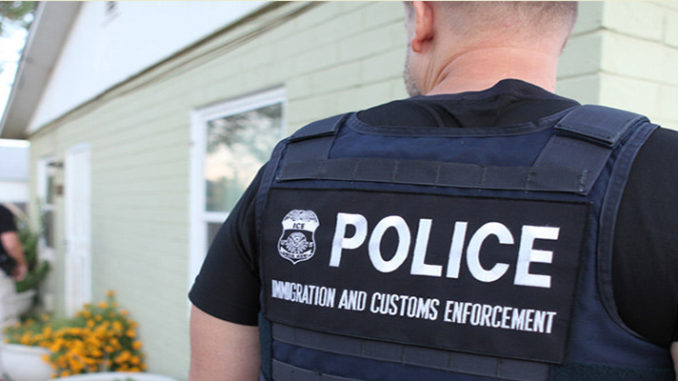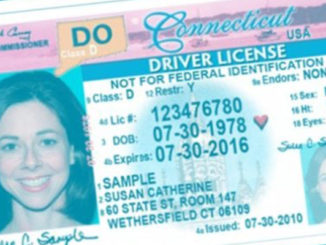
by David Bier
The Trump administration is preparing for another fight in court next month as it attempts to force “sanctuary cities” to detain people targeted for deportation. These cities argue that the administration’s requests would damage the relationships they have built with immigrant communities. But they have another reason to oppose the demands: The federal government may be asking them to detain U.S. citizens.
It’s difficult to tell how often such wrongful detention occurs, since Immigration and Customs Enforcement fails to adequately record these incidents. But it does happen, as Ada Morales in Rhode Island and Gerardo Gonzalez in California — both U.S. citizens — can attest. In both cases, ICE even submitted detainers for them, then canceled the detainer, and yet still listed in the cancellation notice that their nationality was not the United States.
To get a better sense of the problem, the Cato Institute requested data at the local level from Travis County, Tex. — one of the few jurisdictions that record the relevant details. The county includes Austin and was at the center of the fight to ban sanctuary cities in the state after Sheriff Sally Hernandez partially stopped honoring detainers for about eight months in 2017. The state legislature responded by making it a crime to refuse to honor a detainer.
Here’s what the county-level data show: From September 2005 to Aug. 25, 2017, ICE issued 24,269 detainers for people in Travis County custody. In 228 of those cases — almost 1 percent of the detainers — the person claimed U.S. citizenship and presented a Social Security number. ICE then subsequently declined to execute the detainer either by formally canceling it (as the agency did in 156 cases) or by declining to execute it when the person came up for release (which happened in the remaining 72).
The best explanation for this behavior is that ICE verified their citizenship and decided not to make the arrest, wrongfully targeting 228 Americans. ICE supervisory detention and deportation officer John Drane told a court in 2015 that he could think of only two reasons for canceling a detainer: It was discovered the person was a legal permanent resident who had never committed a crime that would make them deportable or they were a U.S. citizen.
While a 1 percent rate may not seem like much, if it holds across the state of Texas, it would mean that ICE sought detainers for at least 3,500 U.S. citizens since 2006. If applied nationally, it would mean that ICE targeted at least 20,000 U.S. citizens.
These figures likely underestimate the true rate of wrongful detention because ICE also arrests U.S. citizens and brings them into custody. One estimate found that about 1.6 percent of people booked into ICE custody were also U.S. citizens.
While privacy laws make it difficult to track down each targeted person in Travis County, we know of a few through some public county sheriff office reports. In 2017, Travis County booked Arcane Tossou into custody after he was arrested for spitting at a police officer. He told the sheriff’s office that he was born in Texas, and the county’s pretrial services list his place of birth as Texas, but ICE still requested that the county detain him.
Tossou was ruled incompetent to stand trial. At this point, ICE would have assumed custody, moved him to a federal detention facility and possibly attempted to deport him. Fortunately, Tossou was released to obtain mental health treatment at a hospital. ICE has attempted to deport at least a half dozen other U.S. citizens with mental disabilities in recent years, including several it successfully deported.
In August 2016, Austin police arrested Richard Renteria, a 20-year-old resident of Austin, for public intoxication. Renteria, who according to his attorney speaks fluent English, told the arresting officers that he was born in Texas. The county’s pretrial services also list Renteria’s place of birth as Texas and confirm that he presented a Social Security number, but ICE issued a detainer. After it canceled the detainer, the county released Renteria.
Why this keeps happening is difficult to determine without access to the federal case files. Undoubtedly, database errors and inadequate investigations play a role.
An ICE spokeswoman declined to comment on specific cases citing privacy concerns, but said that ICE “takes very seriously any and all assertions that an individual detained in its custody may be a U.S. citizen.” She also noted that “ICE continually strives to ensure that its systems of records are accurate and up-to-date. When the agency receives evidence suggesting that information in its systems is inaccurate, steps are taken to ensure the accuracy of such information.”
Regardless, states and localities have every reason to be skeptical about following ICE’s dictates. They need the flexibility to make their own determinations about whether it is proper to hold someone targeted for deportation. Until ICE cleans up its act, there’s just too big a risk that the person may well be an American.
David Bier is an immigration policy analyst at the Cato Institute.



